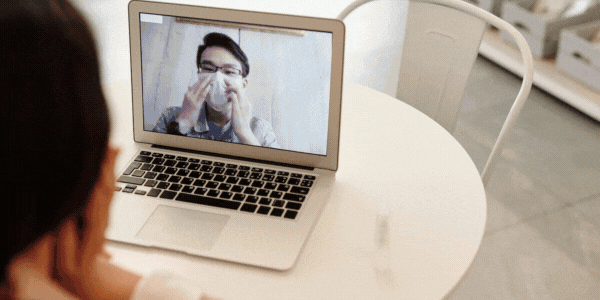Overview
Home Health care plays a growing and critical role in providing care at home for adult and pediatric patients. Despite all the challenges facing the home health care industry, it will continue to grow and play an integral part in providing care at home. Several emerging trends will define that ascent in the year ahead.
Top Home Health Care Trends 2021
With the advancement in technology, there is an ongoing shift in the role of home healthcare to higher-acuity patients, i.e., patients requiring a greater degree of observation and intervention from qualified nurse practitioners. On the other side, COVID-19 brought out the necessity to provide more care, both acute and non-acute, at home to protect the patients from infection and other unwanted health anomalies. Further, home health care will also play an essential and critical role in expanding delivery models like hospital-at-home and SNF-at-home.
There are significant shifts in the home care market itself with the prevalence of new hospital-at-home and SNF-at-home models, which focus on treating high-acuity patients. Further, the US economy is still addressing the impact of the COVID-19 virus, which will lead to the creation of new, disruptive business models.
Through 2021 and after, home care agencies need to identify key trends that will aid or hurt their business models and continually reconfigure themselves for success. In this article, we are bringing out the top home care predictions for 2021 and beyond.
Higher Acuity of Care at Home
As many as 50% of home healthcare patients have five or more chronic health conditions. With the improvements in health tracking and monitoring technologies and the rise of the internet of things in medical devices, we believe that the acuity level of care-at-home services will continue to rise. Further, Physicians are now more comfortable providing hospital or SNF (Skilled Nursing Facilities) level skilled nursing care at home. With rising acuity levels, home health care agencies will offer both higher-skilled care and personal/companionship care at-home.
Home health care agencies must adapt to deliver to higher-acuity requirements and adoption of digital technologies in-home care. They must become more specialized (Respiratory Care, Wound Care, Heart Conditions, etc.) in addition to providing traditional home health care services. As demand for specialized care increases, the trained and technically competent workforce available in-home health care agencies will enable them to compete in the changing health care delivery models.
In the words of Seema Verma, who served as the CMS Administrator, March 2017-Jan 2021, "The tragic devastation wrought by the coronavirus on nursing home residents exposes America's over-reliance on institutional long-term care facilities”. We see this as a positive for healthcare in the home.
Rise of Personal Care and Companionship Care Services
Demand for personal and companionship care will continue to grow due to the retirement of baby boomers. COVID-19 has exposed the need for companionship care at home. In general, care at home is perceived to be better than care aggregator facility-based delivery models. There will be a potential increase in Medicaid funding will also increase demand. Home health care agencies will need to prepare to provide personal care and companionship care, and other skilled services.
Shifting Home Care Delivery Models:
Newer home health care delivery models are coming into play – a trend that COVID-19 has accelerated. Additional Home Care Delivery Models are coming into play.
Hospital-at-home model
Hospitals realize that they need to provide more skilled care at home. Physicians are more willing to prescribe more hospital-based professional care at home. Providing care like cancer care in the home of the patient will continue to grow. Hospitals will need a partnership with home health care agencies to provide these services. Home Health Care agencies must retrain their workforce to deliver multiple services (skilled and non-skilled) to partner with hospitals.
SNF at Home
COVID-19 accelerated a shift in patient's preference to receiving care-at-home over care at skilled nursing facilities. These patients will require skilled home health services and personal care to help with daily living activities. SNFs will need a partnership with home health care agencies to provide these services. This trend also highlights the need for Home Health Care agencies to reconfigure themselves to offer multiple services (skilled and non-skilled) to partner with hospitals.
Telehealth and Telemonitoring
As hospital-at-home and SNF-at-home models begin to see increased adoption, we believe that telehealth and telemonitoring technologies will play critical roles in evolving these models.
Future Unified Site Neutral Payment Model will provide the necessary incentive for these new models. Home Health Care will be at the center of all these new delivery models, which will improve patient experience, outcomes, and satisfaction.
Labor Shortage
With the aging population and demand for services, Home Health Care agencies are already struggling with acute labor shortages – both skilled and non-skilled. We anticipate this trend to continue over the next 12 months.
Improving utilization through better scheduling
The push for increasing the federal minimum wage to over $15 will pose new challenges to home health agencies. As improving utilization becomes a key area of focus for home health agencies, they must efficiently manage employee schedules to maximize their availability.
Retaining employees will be crucial for improving employee satisfaction, and advanced scheduling and travel time estimation tools will become a critical feature of the scheduling functionality of home healthcare software.
The financial viability of the home health agencies is at a very challenging point. Hopefully, Medicaid and other insurances will pass the savings with new delivery models to home health agencies by improving reimbursement.
Career Opportunities for CareGivers
Technology cannot displace caregiving jobs. We anticipate that caregiving opportunities will be in high demand in the future. The caregiving profession is no longer unskilled work. It now requires a good level of competencies in companionship care, skilled nursing, and specialty-specific expertise. Structural changes in the industry are needed to change the perception of caregivers' roles from gig jobs to specialized ones. Also, read the CareVoyant Thought Leadership article, “Six Traits of a Care Giver.”
Changing economics and role of Private Equity
In the post-COVID world, the future of healthcare is in the home. The home healthcare agency market comprises a large number of mom-and-pop agencies. Quite clearly, there will be a significant consolidation as branded home care and consistent quality of service consistency becomes a critical parameter. We anticipate substantial M&A activity in the market, and buyers will look to consolidate regional and city-level agencies to acquire a national-level scale. Backed by VC investors, these aggregators will disrupt the home care market in multiple ways. There will be an increasing demand for software that will make home health care delivery more efficient.
ABOUT CAREVOYANT
CareVoyant is a leading provider of cloud-based integrated enterprise-scale home health care software that can support all home-based services under ONE Software, ONE Patient, and ONE Employee, making it a Single System of Record. We support all home based services, including Home Care, Private Duty Nursing, Private Duty Non-Medical, Home and Community Based Services (HCBS), Home Health, Pediatric Home Care, and Outpatient Therapy at Home.
CareVoyant functions – Intake, Authorization Management, Scheduling, Clinical with Mobile options, eMAR/eTAR, Electronic Visit Verification (EVV), Billing/AR, Secure Messaging, Notification, Reporting, and Dashboards – streamline workflow, meet regulatory requirements, improve quality of care, optimize reimbursement, improve operational efficiency and agency bottom line.
For more information, please visit CareVoyant.com or call us at 1-888-463-6797.
Request for Information
To learn more about CareVoyant Software and how we improve the operational efficiency of Home Healthcare Agencies, contact us:





